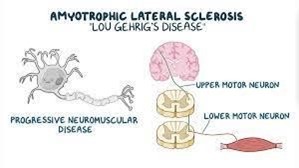A nurse is assessing a client who is 4 hr postoperative following a craniotomy for the treatment of a benign brain tumor. Which of the following findings should the nurse identify as the priority?
15 mL of drainage in Hemovac
Periorbital ecchymosis
Nonreactive pupils
Hgb 11 g/dL
The Correct Answer is C
Choice A rationale:
Drainage in the Hemovac is an expected finding postoperatively and is not as urgent as nonreactive pupils.
Choice B rationale:
Periorbital ecchymosis (bruising around the eyes) is not uncommon after a craniotomy and is not as urgent as nonreactive pupils.
Choice C rationale:
Nonreactive pupils can indicate a neurological emergency, such as increased intracranial pressure or potential damage to the cranial nerves. This finding requires immediate attention to prevent further complications.
Choice D rationale:
Hemoglobin level of 11 g/dL is within a normal range and is not a priority concern.
Nursing Test Bank
Naxlex Comprehensive Predictor Exams
Related Questions
Correct Answer is A
Explanation
Choice A rationale:
Instructing the parent to remove their shirt allows for direct skin-to- skin contact between the parent's chest and the preterm newborn, which is commonly known as kangaroo care. This technique promotes bonding, warmth, and comfort for both the parent and the newborn.
Choice B rationale:
Placing the newborn and parent in a private room that is brightly lit might not be optimal for skin-to-skin care, as preterm newborns are sensitive to light and sound. A calm and dimly lit environment is preferred.
Choice C rationale:
Placing the newborn in a horizontal position in the parent's arms is appropriate, as it allows for skin-to-skin contact and facilitates bonding. The newborn's head is positioned near the parent's chest to listen to the heartbeat.
Choice D rationale:
Completely undressing the newborn is not necessary for skin-to-skin care and may cause discomfort to the newborn. Keeping the newborn dressed in a diaper is sufficient.

Correct Answer is C
Explanation
Choice A rationale:
Wearing splints over affected joints while sleeping is a strategy to prevent contractures, which are common in ALS.
Choice B rationale:
Dexamethasone is not used to treat muscle atrophy in ALS.
Choice C rationale:
As ALS progresses, clients may lose the ability to control their respiratory muscles, and a machine such as a ventilator may be required to assist with breathing.
Choice D rationale:
Nutrition through a central venous access device is not a standard intervention for ALS, as the focus is on preserving the client's ability to eat and swallow for as long as possible.

Whether you are a student looking to ace your exams or a practicing nurse seeking to enhance your expertise , our nursing education contents will empower you with the confidence and competence to make a difference in the lives of patients and become a respected leader in the healthcare field.
Visit Naxlex, invest in your future and unlock endless possibilities with our unparalleled nursing education contents today
Report Wrong Answer on the Current Question
Do you disagree with the answer? If yes, what is your expected answer? Explain.
Kindly be descriptive with the issue you are facing.
